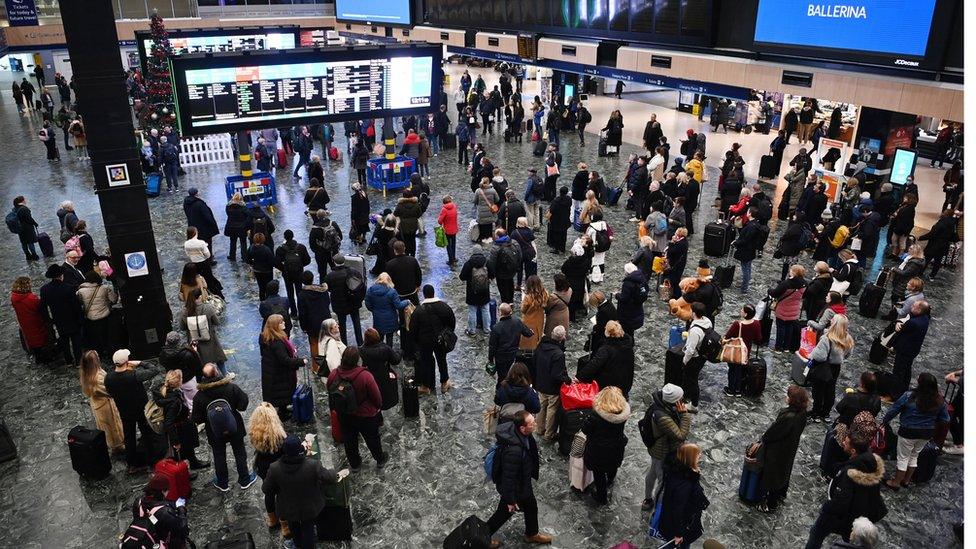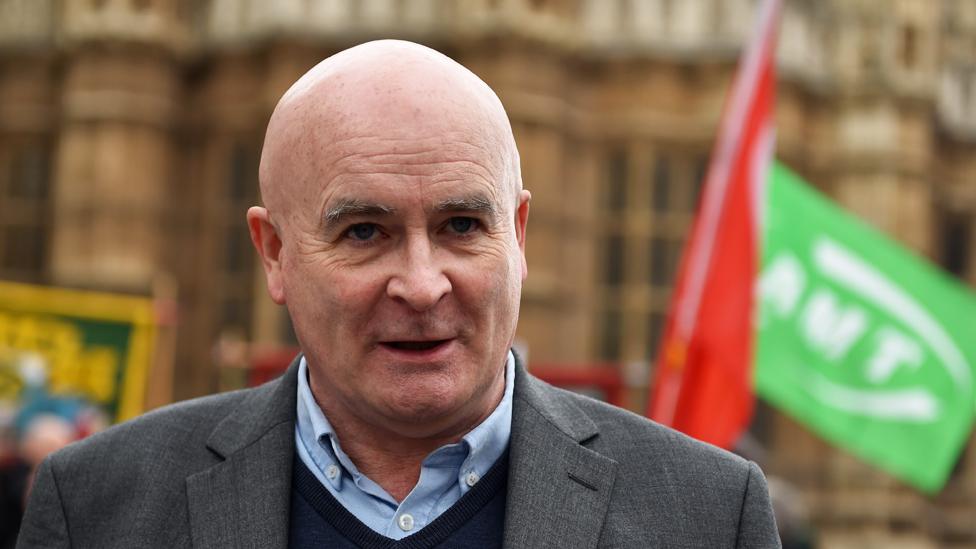Chris Mason: Strikes and unrest spell trouble for government
- Published
- comments

Fresh rail strikes have been announced for Christmas Eve as the row over pay and conditions escalates
This is a country where, right now, posting a letter, getting a train, catching a flight, having a driving test, even going to school or seeing a nurse is, depending on where you live, potentially jeopardised, unlikely or subject to postponement.
Lots of stuff which we can normally take for granted isn't working.
The breadth and scale of strikes in the coming weeks presents the government with obvious political peril, for this very reason.
A sense of almost contagious unrest; overlapping anxieties about wages, terms and conditions as prices spiral.
There is deep irritation across the trades union movement about the government's approach.
"They're trying to wrap themselves in the cloak of Margaret Thatcher," one senior figure put to me.
Another claimed ministers are not willing to meaningfully engage with them.
The government argues, on the rail dispute, that the transport secretary has facilitated talks to find a deal.
And ministers say inflation busting pay rises are unaffordable and they must focus on getting inflation down.
I am picking up some chat about whether, in some sectors, the government might consider the case for some sort of one off payment to some workers given the current rate of inflation.
But this could be a very tricky thing to make work. And, of course, comes with a cost.
Labour claim there is now a "militant government" unwilling to deal with what it is confronted by.
But industrial action, particularly on this scale, is awkward for Labour - you can already hear the verbal contortions they perform when they are asked whose side they are on.
Which brings us to public opinion.
When so, so many are struggling to cope with the cost of living and economic woe, where does sympathy lie?
Where does it end up - does it shift - as the disruption caused by such widespread industrial action becomes increasingly obvious?
And, in turn, where does that leave the government? And where does it leave the prospect of resolutions to these disputes?
Related topics
- Published6 December 2022

- Published1 August 2023

- Published9 May 2024

- Published23 November 2022

